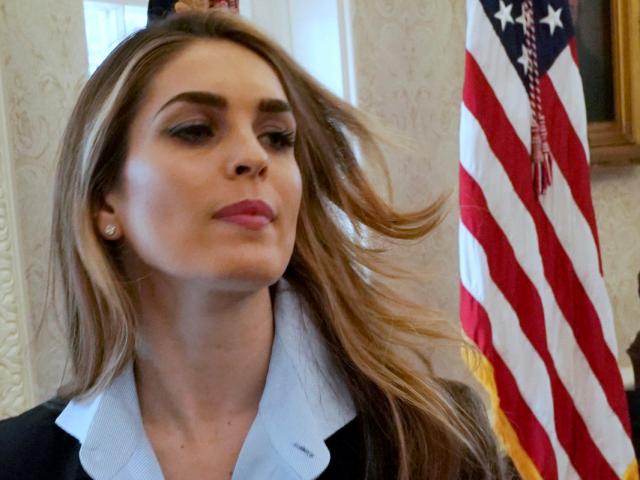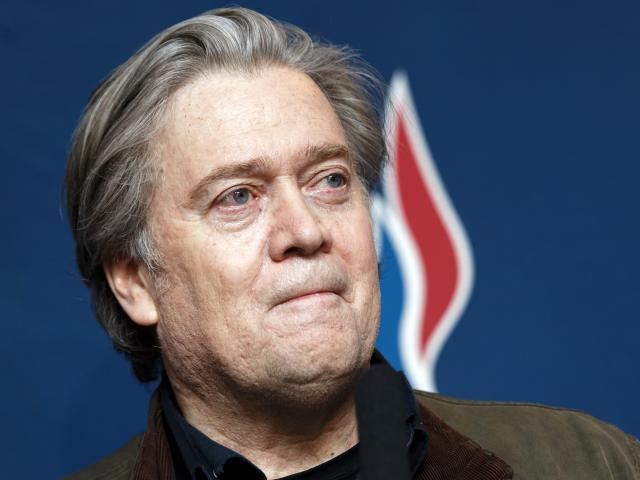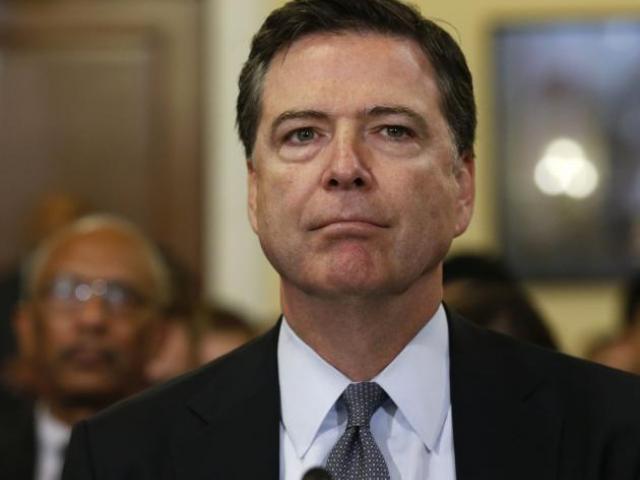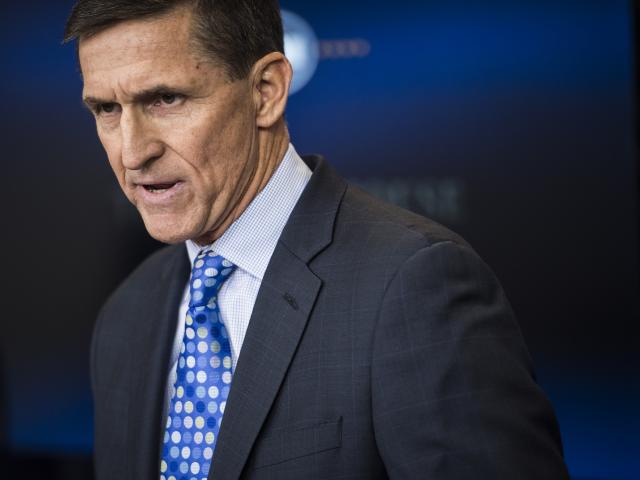
US President Donald Trump has shaken up his foreign policy team again, replacing H.R. McMaster as national security adviser with John Bolton, a hawk who has advocated using military force against North Korea and Iran.
The move, announced in a tweet, came little more than a week after the firing by Trump of Rex Tillerson as secretary of state. Central Intelligence Agency Director Mike Pompeo was nominated to replace him.
The shake-up means Trump is bringing in top advisers more likely to agree with his views, with a prospective summit meeting approaching between Trump and North Korean leader Kim Jong Un. That is supposed to happen by the end of May.

McMaster, hired early in Trump's presidency to replace scandal-tarred Michael Flynn as national security adviser, had been widely expected to leave soon.
Trump found McMaster's style grating and had been looking for a replacement, advisers said.
The White House said Trump and McMaster had "mutually agreed" that he would leave.
The announcement came a day after Trump was angered by a leak of information from his presidential briefing papers that said he was advised specifically not to congratulate Russian President Vladimir Putin on his disputed re-election.
"The two have been discussing this for some time. The timeline was expedited as they both felt it was important to have the new team in place, instead of constant speculation. This was not related to any one moment or incident, rather it was the result of ongoing conversations between the two," a senior White House official said.
McMaster (55) is to stay on until mid-April. He said in a statement he was also requesting retirement from the US Army, in which he holds the rank of three-star general.
White House Chief of Staff John Kelly had been hoping to entice McMaster into another military assignment in order to qualify as a four-star general.
'FASTEN YOUR SEAT BELTS'
The hiring of Bolton (69), which does not require US Senate confirmation, came despite concerns by some foreign policy analysts that the former US ambassador to the United Nations might use his position to pursue his own global views, rather than carry out Trump's.
“Bolton has long been an advocate for pre-emptive military action against North Korea, and his appointment as National Security Adviser is a strong signal that President Trump remains open to these options," said Abraham Denmark, deputy assistant secretary of defense for East Asia under former President Barack Obama.
"We should also expect an even more confrontational approach to China - a trade war may just be the beginning of a broader geopolitical competition,” he said.
The announcement was made shortly after Bolton and Trump met in the Oval Office.
As the State Department's top arms control official under President George W. Bush, Bolton was a leading advocate of the 2003 invasion of Iraq - which was later found to have been based on bogus and exaggerated intelligence about President Saddam Hussein's weapons of mass destruction and ties to terrorism.
In recent years, as a conservative media commentator, Bolton has advocated hardline positions on stopping Pyongyang from getting nuclear weapons that could threaten the United States.
He has also advocated getting rid of the 2015 Iran nuclear deal, a pact Trump has also heavily criticized.
“Bolton has long supported regime change in North Korea and closer ties with Taiwan. Fasten your seat belts,” said Bonnie Glaser, Asia expert at the Center for Strategic and International Studies, a Washington think tank.
LONG LIST OF DEPARTEES
Below is a partial list of officials who have been fired or quit since Donald Trump took office on January 20, 2017, as well as people nominated by him for a position who did not take the job.
• 2018
H.R. McMaster - The national security adviser was replaced on March 22 with John Bolton, according to a tweet sent by the president.
Rex Tillerson - The secretary of state was fired by Trump on March 13 after a number of public rifts between the two over North Korea, Russia and Iran.
Gary Cohn - The director of the National Economic Council and former Goldman Sachs Group Inc president said on March 5 he will resign in a few weeks. His decision came after he lost a fight to try to stop Trump from imposing import tariffs on steel and aluminum.

Hope Hicks - The White House communications director, one of Trump's longest-serving and most trusted aides, resigned on February 28. She was the fourth person to hold the post since Trump became president.
Rob Porter - The White House staff secretary, a senior adviser in charge of much of the documentation that went to Trump for his signature, resigned in early February following accusations of domestic abuse from two former wives.
• 2017
Richard Cordray - The Consumer Financial Protection Bureau's first director resigned in November. Trump designated White House Budget Director Mick Mulvaney as acting director, but Cordray named a deputy director as his replacement, triggering a political and legal battle. Four days later, a federal court ruled in Trump's favor.
Tom Price - The Health and Human Services secretary resigned under pressure from Trump on Sept. 29 in an uproar over Price's use of costly private charter planes for government business.

Stephen Bannon - Trump's chief strategist, who had been a driving force behind the president's anti-globalization and pro-nationalist agenda that helped propel him to election victory, was fired by Trump in mid-August. He had repeatedly clashed with more moderate factions in the White House.
Reince Priebus - The former chairman of the Republican National Committee was replaced by John Kelly as Trump's chief of staff in July. Trump lost confidence in Priebus after major legislative items failed to be approved by Congress.
Anthony Scaramucci - The White House communications director was fired by Trump in July after just 10 days on the job, following profanity-laced comments to The New Yorker magazine.
Walter Shaub - The head of the US Office of Government Ethics, who clashed with Trump and his administration, stepped down in July before his five-year term was to end.
Michael Short - Senior White House assistant press secretary, resigned in July.
Sean Spicer - Resigned as White House press secretary in July, ending a turbulent tenure after Trump named Scaramucci as White House communications director.

James Comey - The Federal Bureau of Investigation director, who was leading a probe into possible collusion between the Trump 2016 presidential campaign and Russia to influence the election outcome, was fired by Trump in May.
James Donovan - A Goldman Sachs banker nominated by Trump as deputy Treasury secretary, withdrew his name in May.
Michael Dubke - Resigned as White House communications director in May.
Mark Green - Trump's nominee for Army secretary withdrew his name from consideration in May.
Todd Ricketts - The co-owner of the Chicago Cubs baseball team and Trump's choice for deputy secretary of commerce withdrew from consideration in April.
Katie Walsh - The deputy White House chief of staff was transferred to the outside, pro-Trump group America First Policies in March, according to Politico.
Philip Bilden - A private equity executive and former military intelligence officer picked by Trump for secretary of the Navy, Bilden withdrew from consideration in February because of government conflict-of-interest rules.

Michael Flynn - Resigned in February as Trump's national security adviser after disclosures that he had discussed US sanctions on Russia with the Russian ambassador to the United States before Trump took office and had misled Vice President Mike Pence about the conversations.
Gerrit Lansing - The White House chief digital officer stepped down in February after failing to pass an FBI background check, according to Politico.
Robin Townley - An aide to Flynn, Townley was rejected in February after he was denied security clearance to serve on the US National Security Council, according to Politico.
Vincent Viola - The Army veteran and former chairman of the New York Mercantile Exchange was nominated by Trump to be secretary of the Army, but withdrew his name from consideration in February.
Caroline Wiles - Trump’s director of scheduling, resigned in February after failing a background check.
Sally Yates - Trump fired the acting US attorney general in January after she ordered Justice Department lawyers not to enforce Trump's immigration ban.












